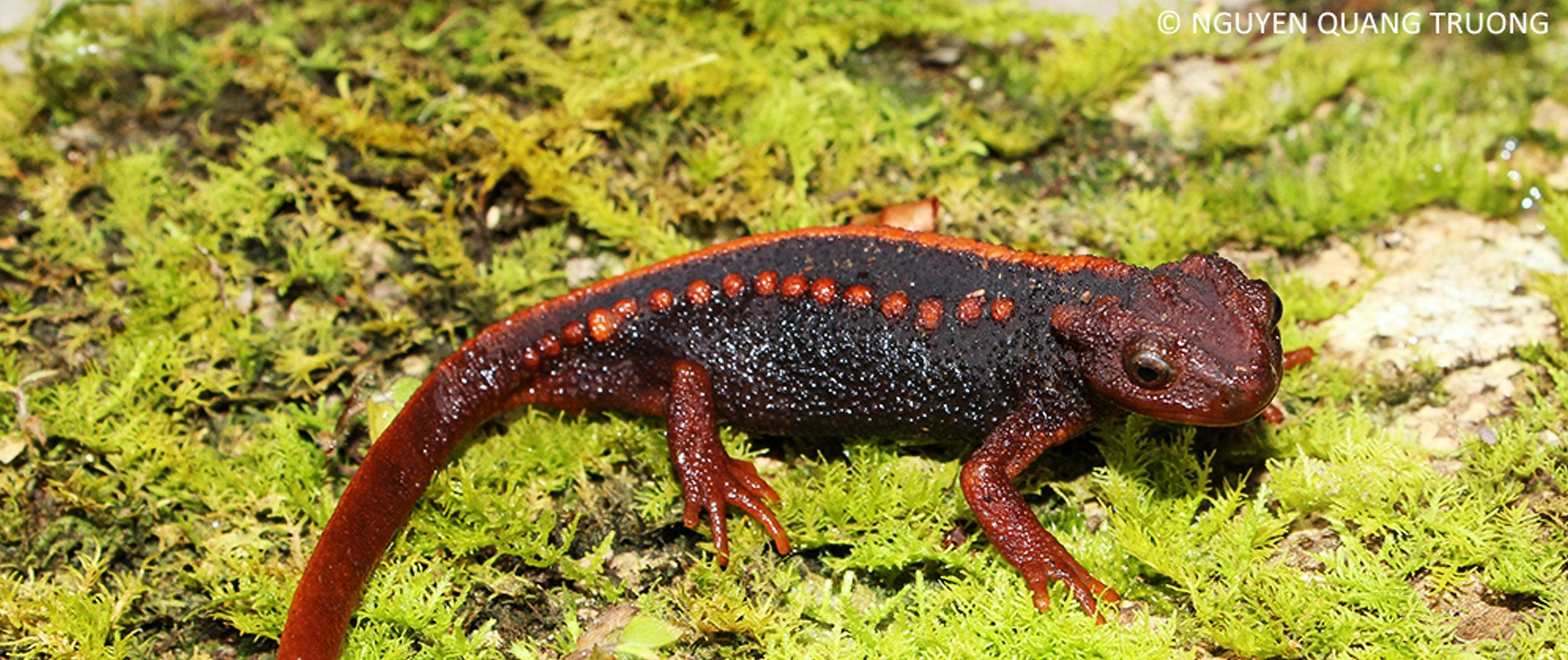Published Dec 24, 2016
Behold the Klingon Newt -- for Real!!
Behold the Klingon Newt -- for Real!!

Ladies and gentlemen, behold the "Klingon Newt." A new report published the other day by the World Wildlife Fund revealed 163 new species discovered in 2015 in the Greater Mekong region, and one of them is the Tylototriton anguliceps, nicknamed Klingon Newt because it resembles the distinctive skull shape of a certain Star Trek alien species. The species -- a newt between 6 and 7 cm long, distinguished by a dorsal ridge and unique red markings -- was discovered in Thailand by Dzung Trung Le, Tao Thien Nguyen, Kanto Nishikawa, Son Lan Hung Nguyen, Anh Van Pham, Masafumi Matsui, Marta Bernardes & Nguyen Quang Truong.
Here's the full report on the Klingon Newt, via World Wildlife Foundation:
"Knowing there were only three newt species known to exist in Thailand was what originally drew Dr. Porrawee Pomchote and his team to Chiang Rai province in the northeast of the country. He began this research in 2007 and was only able to identify the subtle distinctions in taxonomy between the populations of newts in the regions after years of careful study, especially given the close proximity of their distributions.
With its striking red and black markings contrasting dramatically with the green of the surrounding landscape, these newts add to the list of unique amphibians found in Thailand. However, amphibians are especially sensitive to pesticides given their porous skin. Pesticide use and deforestation make up the main threats to Tylototriton anguliceps, according to Dr. Pomchote.
He remains optimistic, though, despite the threats faced by newts in Thailand. “It is rather lucky that nearly all newt populations in Thailand are distributed in many protected areas like national parks or wildlife sanctuaries. But I strongly support raising awareness of the incredible biodiversity of the region and the need to protect it."
The Mekong region and its river encompass parts of Laos, Cambodia, Thailand, Myanmar, and Vietnam. To learn more, go to wwf.panda.org.

